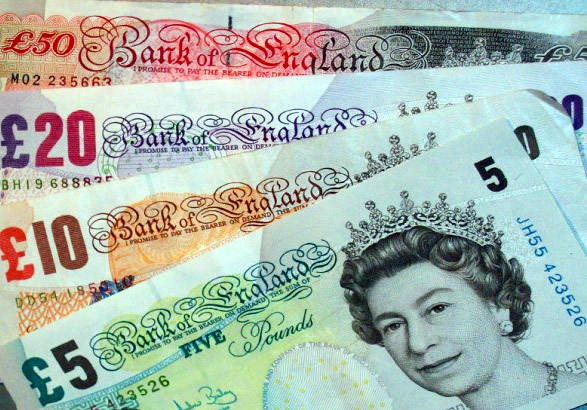What happens to the pound and what the Bank of England will do

After the UK government announced tax cuts and a cap on energy prices, financial markets reacted negatively and the pound fell sharply. The analysis by Steven Bell, Chief Economist EMEA of Columbia Threadneedle Investments
The budget of the British Chancellor of the Exchequer Kwasi Kwarteng was not enthusiastically received by the financial markets. In all likelihood, the energy price cap scheme means that the UK has avoided a short-term recession. However, the cost in terms of additional public debt is enormous, with the Chancellor doubling down on tax cuts, thereby further increasing debt.
How much it has increased is not known, since Kwarteng prevented the Office for Budget Responsibility (OBR) from processing the numbers correctly. We believe the OBR would actually have predicted even larger budget deficits. For example, the direct cost of tax cuts on the highest rates is £ 6 billion, but the new Chancellor has speculated that "behavioral changes" will reduce it to £ 2 billion. This seems unlikely.
The pound has hit historic lows and base rates are expected to exceed 6%. Government bond yields rose. A similar pattern is seen around the world: central banks are raising rates faster than markets expected and bond yields are rising. Interest rate expectations in the UK, however, have increased in relative terms thanks to measures by the new UK government.
Why is the pound vulnerable?
The pound is particularly vulnerable as the UK has a huge current account deficit. As Mark Carney said, "the UK depends on the kindness of foreigners", as we have to borrow overseas to finance the deficit, and these are becoming more and more expensive. This is one of the reasons, but not the only one, why the deficit hit a record in the first three months of the year. We will have the new numbers on Friday.
The consensus sees a situation improving, but the truth is that we cannot be absolutely certain. Government statisticians have changed the way they calculate the numbers and aren't sure if they got it right. And the country is facing a very challenging overall picture. The willingness of "foreigners" to bail out the UK is highly dependent on global risk appetite. When stocks are up, the pound tends to strengthen. However, equities were very weak last week, highlighting poor timing for the announcement of Kwarteng's tax reform.
Will the Bank of England be able to stabilize the situation?
Several members of the Central Bank's Monetary Policy Committee (MPC) are expected to speak this week, and many of them are sure to adopt hawkish rhetoric. The government tried to blame the decline in the pound on the MPC's decision to raise base rates "by only 0.5%". A rather strange decision.
The Bank of England is independent, but the government appoints its members. While he cannot fire Governor Andy Bailey in strictly legal terms, he would almost certainly resign if the Chancellor so desired. Many expect Bailey to leave his post early next year. Personally, I hope this doesn't happen. In the meantime, the rating agencies will consider whether to put the UK under negative scrutiny. But the governor is but a member of the MPC and many other members would be happy to confront the government and raise rates aggressively.
There is talk of an emergency meeting to raise base rates before the next meeting scheduled for November 3. If I were on the committee, I would object: it would seem a sign of panic. Instead, I would be in favor of a 5% rate hike in the coming months. This level would attract funds to the UK, although the new UK government would need some luck to avoid a financial crisis.
Parity with the dollar seems likely
The pound could fall below par against the dollar in the coming weeks. Higher interest rates are needed to offset the increased risk stemming from the new Chancellor's measures, and while the energy price cap may have prevented a recession this winter, the UK economy still looks very vulnerable.
This is a machine translation from Italian language of a post published on Start Magazine at the URL https://www.startmag.it/economia/sterlina-cosa-succede/ on Sun, 02 Oct 2022 05:23:02 +0000.
